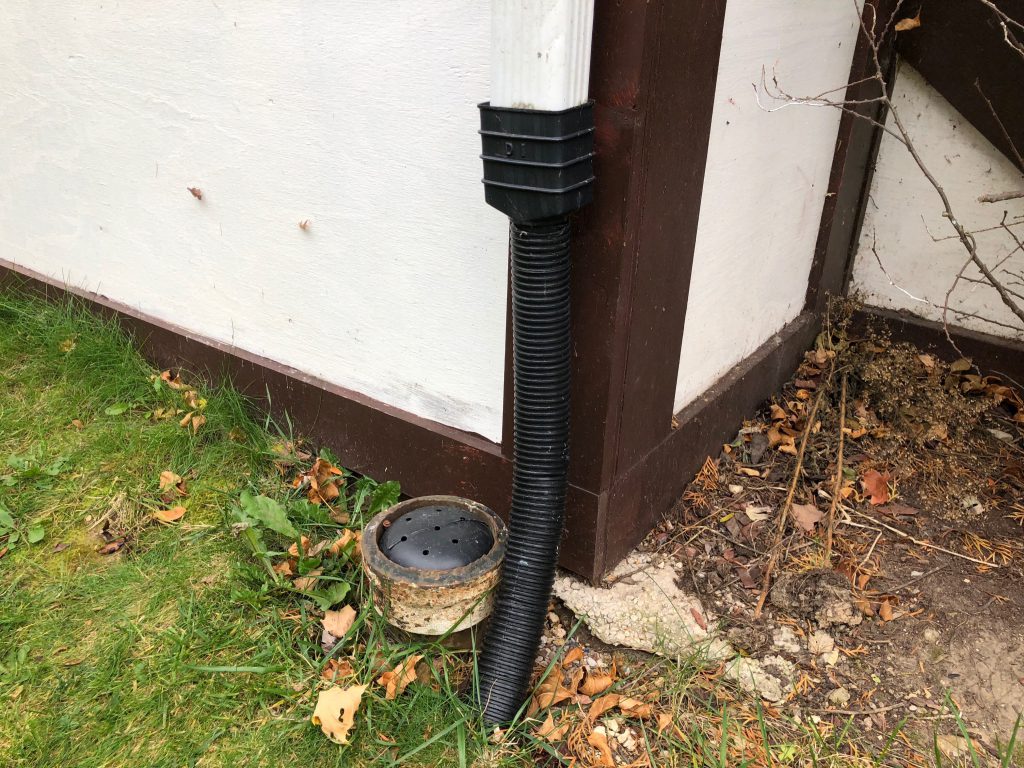The Downspout Police Are Coming
Disconnecting downspouts is part of strategy to reduce Deep Tunnel overflows into Lake Michigan.
Did you ignore multiple letters offering a cash incentive to disconnect your downspouts from the sewer system?
A representative of the Department of Neighborhood Services (DNS) could soon be coming to your home to ensure that disconnection is actually made.
The first of multiple letters was mailed in 2019 to owners of one-to-four-family residences in the combined sewer area (roughly east of 35th Street, north of Oklahoma Ave., south of Capitol Dr.) that detailed how a contractor would perform the disconnection work for free or the city would provide $50 per downspout (up to $100) if the property owner did it themselves.
The cash incentive is now being dropped as part of a move to phase two. But, in a change from the original plan introduced in 2018, the Department of Public Works (DPW) and DNS will still pay for a contractor to perform the work, said DPW civil engineer Kurt Sprangers on Wednesday to members of the Public Works Committee.
Approximately 16,000 homeowners were non-responsive to the letters and will receive a visit.
Under the common, local residential property setup, rain falls on the roof of a house, runs down the downspouts and eventually into the sewers, combining with other wastewater and flowing into the Deep Tunnel system before being treated. Increasingly common heavy rains can cause the sewer system to overflow into Lake Michigan and area rivers in order to avoid water backing up into homes. Disconnecting downspouts, which can carry up to 12 gallons a minute flowing towards the sewer system, is designed to create more space for other sources of wastewater and thereby improve the effectiveness of the Deep Tunnel.
The city’s part of the project started in 2018 with a Google Earth-based survey of the more than 53,000 homes in the combined sewer area. That process eliminated 26,000 homes from eligibility. A discharge point must be available that is five feet away from foundation walls and property lines, sloped away from any nearby structure and that does not cause ice to form on streets or sidewalks.
“Those that could not disconnect we referred to [the Milwaukee Metropolitan Sewerage District] for their rain barrel program. I think they got plenty of requests. It more or less overwhelmed their program,” said Sprangers.
But city officials ran into their own problem once they started doing visits to respondents: approximately 81% of the houses weren’t eligible upon further review.
A total of 1,569 houses were disconnected by contractors and 552 homes were disconnected by their owner.
Of the 16,000 remaining homes, Sprangers said the city expects that 81% will also be ineligible.
Those that still are eligible will need to be disconnected by the end of 2024. Sprangers said a proposed ordinance is forthcoming that will codify that.
Milwaukee is funding the multi-million-dollar effort through an already implemented increase to the city’s sewer fee.
The program was triggered by a 2014 MMSD policy change and also impacts houses in the Village of Shorewood. Not all of Milwaukee relies on the combined sewer system, but 11 of the city’s 15 aldermanic districts are affected. Connection of downspouts to a sanitary (separated) sewer system is prevented by state law. Residential properties constructed since 2016 are prohibited by city ordinance from connecting downspouts to the combined sewer system.
Legislation Link - Urban Milwaukee members see direct links to legislation mentioned in this article. Join today
If you think stories like this are important, become a member of Urban Milwaukee and help support real, independent journalism. Plus you get some cool added benefits.
City Hall
-
Council Blocked In Fight To Oversee Top City Officials
 Dec 16th, 2025 by Jeramey Jannene
Dec 16th, 2025 by Jeramey Jannene
-
Latest Effort to Adopt New Milwaukee Flag Going Nowhere
 Dec 3rd, 2025 by Jeramey Jannene
Dec 3rd, 2025 by Jeramey Jannene
-
After Deadly May Fire, Milwaukee Adds New Safety Requirements
 Dec 2nd, 2025 by Jeramey Jannene
Dec 2nd, 2025 by Jeramey Jannene






















I wish the city would go after the huge paved parking lots that drain into the sewer system. That seems like a far larger problem than the draining roofs of houses packed on 25 or 30 foot lots.
The city told us they were unable to disconnect our downspouts as the water would flow into our neighbor’s yards. That isn’t true. We paid to have a contractor disconnect them, with the downspouts and water going into our front yard. I think more homes are eligible than what the city says. It’s all about willpower. And the money to actually do the project.